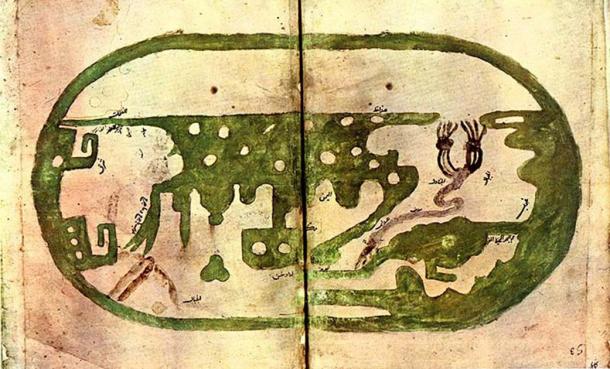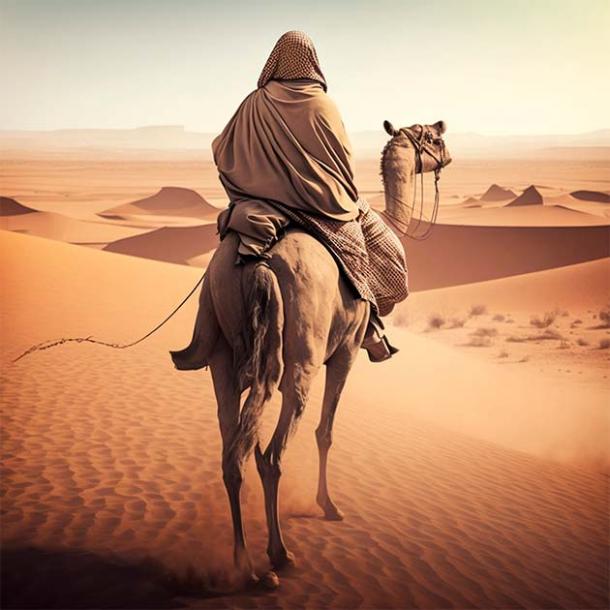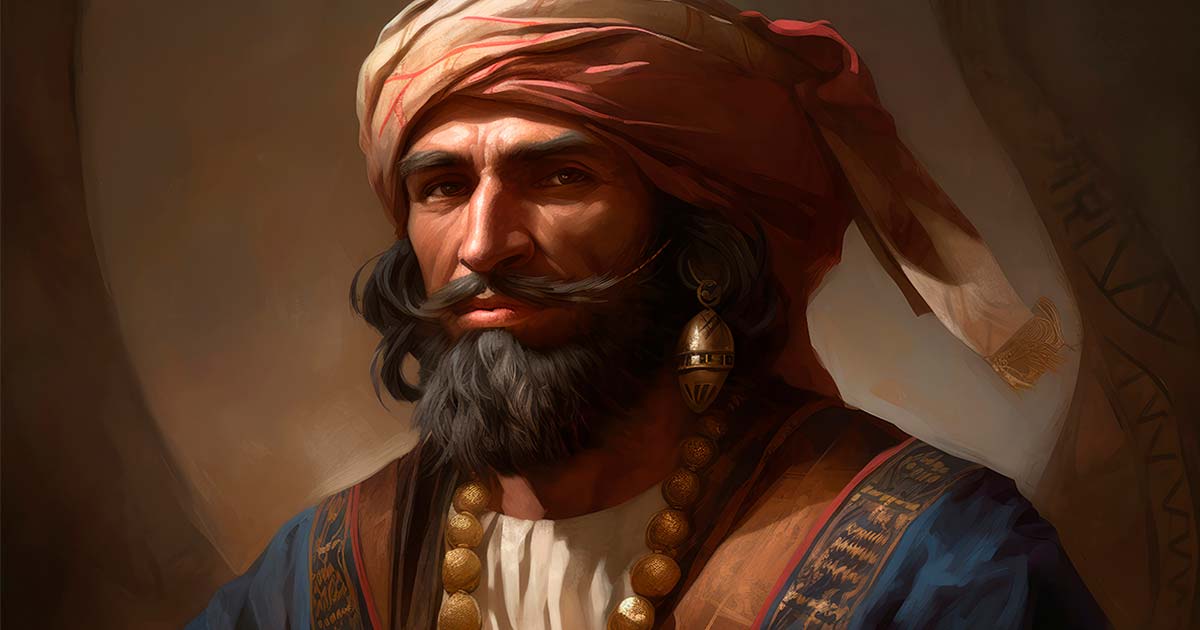I covered this chap before, but never quite appreciated his achievement. he essentially explored the whole known world over his whole lifetime and actually described hte peoples he ran into. No one had ever done that. It is his good fortune that arabic had become a sort of global lingua franca allowing his investigations.
A combination of christian destruction of classical civilization along with arabic displacement had created global dark age in which few were actively literate the ancient standards.
Yet his effort was a real map of existing peoples or tribes allowing a traveler to know who was ahead of him, just like those old nautical maps htat tracked coastlines. what he did was a legitimate mapping of the known world.


The Uncharted Horizons of Ibn Hawqal, the World’s First Travel Writer
UPDATED 17 JUNE, 2023 - 18:54 ALEKSA VUČKOVIĆ
https://www.ancient-origins.net/history-famous-people/ibn-hawqal-0018653?utm_source=jeeng&utm_medium=email&trigger=click
At a time when the outlines of the known world were a mystery to many, and even the most powerful empires had no idea about the realms beyond their distant borders, the scholars of the Muslim world rose up as pioneers of exploration and geography. Ibn Hawqal, who lived in the 10th century AD, can rightfully be considered as the world’s first travel writer. Thanks to his extensive explorations and mapping, the people of the early Middle Ages had a much better knowledge about the world around them, and the cultures living in it. But how exactly was the world envisioned in the 10th century AD?
Ibn Hawqal: A Trailblazer Mapping the Unknown
Born in the town of Nisibis in Upper Mesopotamia (modern-day Nusaybin in Turkey), Muḥammad Abū’l-Qāsim Ibn Ḥawqal would leave his mark as a noted Muslim scholar. The details of his earliest life are not known, except that his birth name was Alī Ibn Ḥawqal al-Naṣībī.
During his lifetime, all great empires and countries had only a vague notion about the outlines of the world around them and maps were pretty much nonexistent. While it was generally understood that there were odd cultures existing abroad, the exact layout of the land was a complete mystery. For example, lands to the North, such as in Scandinavia, were virtually unknown to the inhabitants of the Byzantine Empire or the Arab world, while realms far closer to hand remained an enigma.
But Ibn Hawqal was the man to put an end to that lack of knowledge. Between the years 943 and 969 AD, he traveled extensively around the known world, i.e. Europe, Asia, and Africa, leaving detailed accounts of what he saw, and creating some of the first credible maps of the world.
In 977 AD he finished his most important and influential work: Ṣūrat al-’Arḍ or “The Face of the Earth.” His crowning achievement, it was finished shortly before his death, as we know that Ibn Hawqal passed on sometime after 978 AD.
A good portion of his investigations were based on the earliest geographical texts by Arab geographers such as Istakhri and Ahmed ibn Sahl al-Balkhi, both of whom lived in the 10th century. Their work, however, was nowhere near as detailed or extensive as the pioneering studies by Ibn Hawqal. His dedication to exploration, the unique writing style, and even his odd 10th century humor, all influenced later Arab travel writers and scholars.

Ibn Hawqal’s crude 10-century world map. ( Public domain )
Exploring the Barbaric and Uncivilized World of the 10th Century
During the 10th century, the Arab world was in many ways ahead of mainland Europe. It must have certainly been a great cultural shock for Ibn Hawqal as he traveled and experienced many diverse cultures and cities. Still, his journeys were sensational and set new standards for explorers that would follow.
Ibn Hawqal was the first to travel south of the equator along the coasts of East Africa, where he witnessed the thriving African tribes which he noted were heathen ( kafir). In stark contrast, the previous Greek writers had written, based only on simple logic and without actually travelling or exploring the area, that this region was barren and uninhabitable.
Still, not all of Ibn Hawqal’s descriptions were polite, so to speak. As was common at the time, fueled by politics and religious divisions, this Muslim explorer was quick to denigrate and crudely describe the European cultures he met. Much like the shocking descriptions of the Rus’ Slavs and Vikings by Ibn Fadlan, Ibn Hawqal dubbed the Christian populace of Palermo as “barbaric and uncivilized.”
As Ibn Hawqal traveled through the Mediterranean, he visited friendly Muslim lands of Sicily and Al-Andalus, a.k.a. Muslim Spain, as well as leaving an important account of the thriving Muslim commune of Fraxinetum, modern-day La Garde-Freinet in France.
Additionally, he undertook a significant journey to the “Land of the Rum” - i.e. the Byzantine Empire, noting the multicultural and diverse face of its capital, Constantinople. What is more, Ibn Hawqal was amongst the first to travel to the Caucasus region, noting with great attention to detail that around 360 languages were spoken there, all unified by Arabic as the area’s lingua franca.

Representational image of a medieval explorer. ( DALU11 / Adobe Stock)
Ibn Hawqal’s Thirty Years of Extensive Travels Across the World
On his extensive travels, Ibn Hawqal visited the lands of the Bulgars and the Khazars, the peoples of the European steppe. He made note of the Saqaliba (Muslim for “Slavs”) who dwelt in the Balkans, and made detailed descriptions of the Rus’ capital, Kiev.
Afterwards, his journeys took him further east, to the lands of the Sindh along the Indus River – where he made extensive geographical outlines of this distant region. His full map of the known world, although crude by today’s standards, mentions all the right cultures and nations – at all the right places. So accurate was the map for its time, that it was a great help for the Arab maritime and caravan travelers .
In the end Ibn Hawqal's magnum opus–entitled Face of the Earth –was a truly revolutionary work for the 10th century. For 30 years Ibn Hawqal traveled and explored, amassing immense knowledge of the known world, providing an invaluable resource for all the travelers, merchants and rulers of every kingdom and empire.
The ancient Muslim explorer inspired literacy, travel, exploration and fostered a deeper comprehension of geography as a whole. Centuries later, his writings continue to offer a remarkable window into the way the world was understood in the early Middle Ages. Ibn Hawqal's legacy endures as an invaluable source, inspiring our understanding of the world as it was perceived in bygone eras.

No comments:
Post a Comment